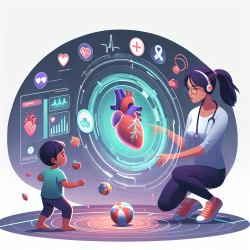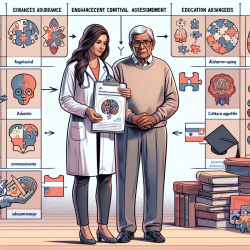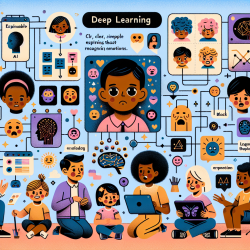Introduction
The COVID-19 pandemic has had profound impacts on various aspects of health, particularly in the pediatric population. A recent study titled "Cardiopulmonary Exercise Performance in the Pediatric and Young Adult Population Before and During the COVID-19 Pandemic" provides valuable insights into how physical activity (PA) and sedentary behavior (SB) have affected cardiopulmonary exercise performance in children and young adults. This blog will explore the study's findings and discuss how practitioners can use this data to enhance therapeutic outcomes for children.
Key Findings from the Study
The study conducted a retrospective longitudinal cohort analysis on patients aged 6-22 years who underwent cardiopulmonary exercise stress testing before and during the pandemic. Key findings include:
- A significant decrease in predicted peak aerobic capacity was observed in both males and females during the pandemic.
- There was no significant change in physical working capacity despite changes in somatic growth.
- Patients with higher pre-pandemic aerobic fitness experienced a greater decline in aerobic capacity.
- The decline in cardiopulmonary performance was independent of changes in BMI.
Implications for Practitioners
These findings underscore the importance of maintaining physical activity among children, even during challenging times such as a pandemic. For practitioners, this study suggests several actionable steps:
- Promote Physical Activity: Encourage children and their families to engage in regular physical activities, even if it means adapting to home-based exercises or virtual sports.
- Monitor Aerobic Capacity: Regular assessments of a child's aerobic capacity can help identify declines early and allow for timely interventions.
- Integrate Exercise in Therapy: Incorporate aerobic exercises into therapy sessions to help improve overall cardiopulmonary health.
- Educate Families: Provide resources and education to families about the importance of physical activity for cardiovascular and mental health.
Encouraging Further Research
While this study provides critical insights, it also highlights the need for further research. Practitioners should consider participating in or initiating studies that explore long-term effects of decreased physical activity on pediatric health. Additionally, research into effective interventions to counteract these declines would be beneficial.
Conclusion
The decrease in cardiopulmonary exercise performance during the COVID-19 pandemic presents a significant public health concern. However, it also provides an opportunity for practitioners to innovate and adapt their approaches to pediatric therapy. By integrating the study's findings into practice, we can work towards better health outcomes for children.
To read the original research paper, please follow this link: Cardiopulmonary Exercise Performance in the Pediatric and Young Adult Population Before and During the COVID-19 Pandemic.










